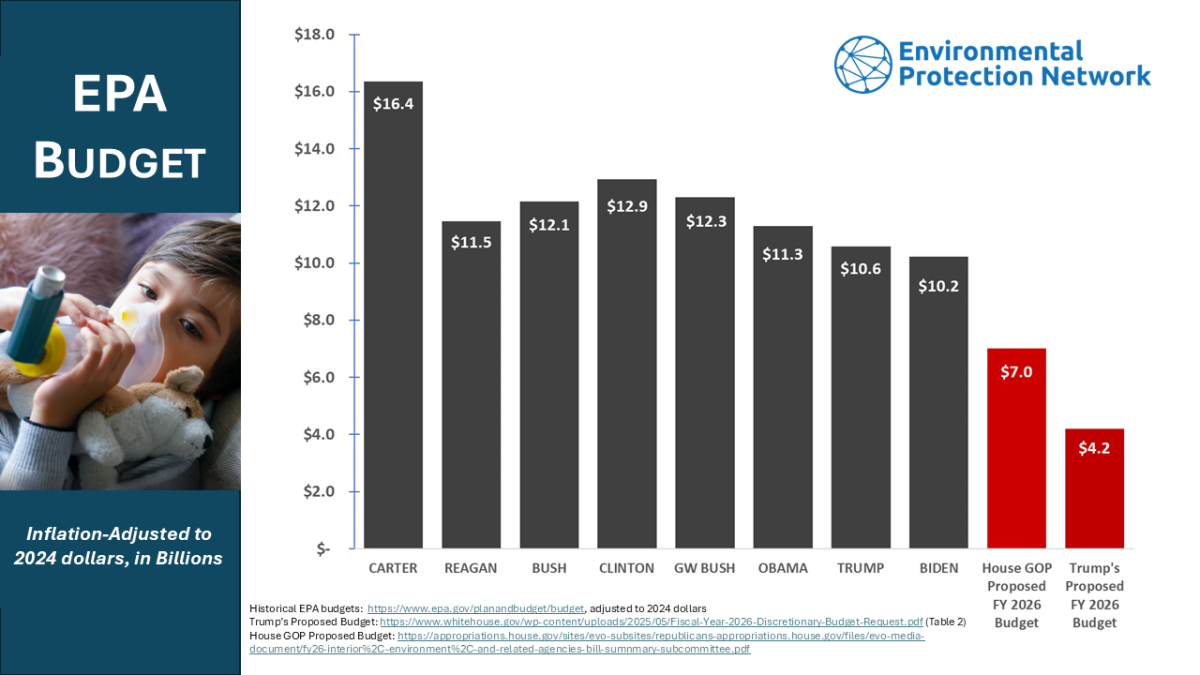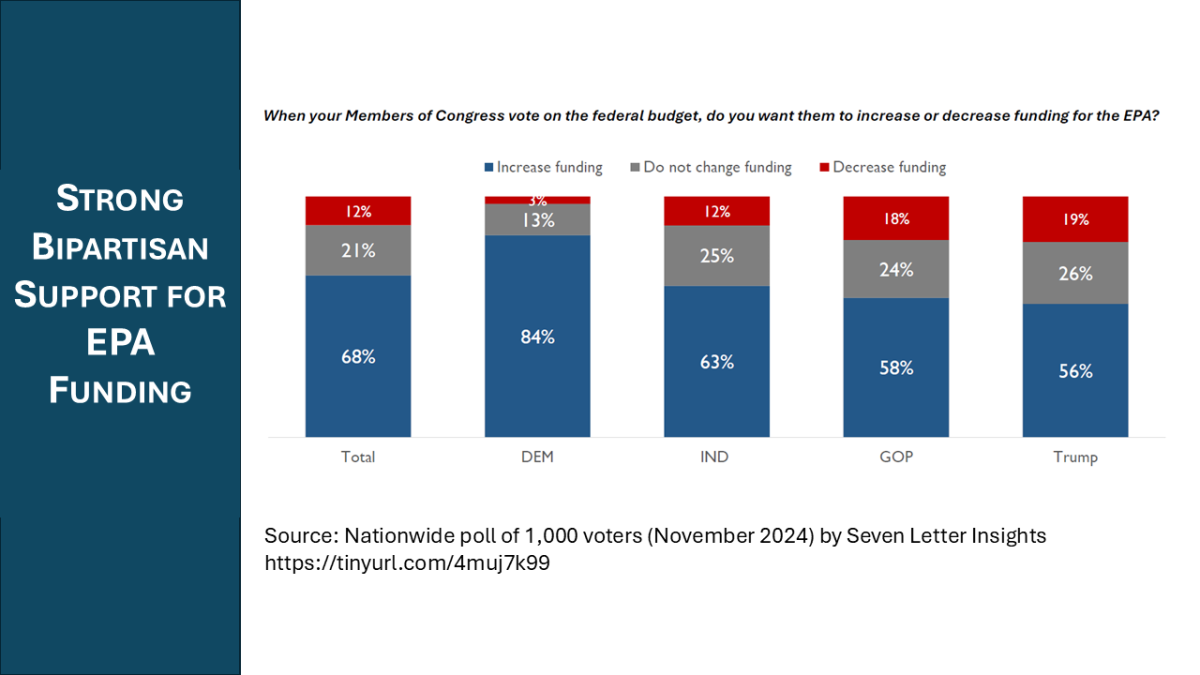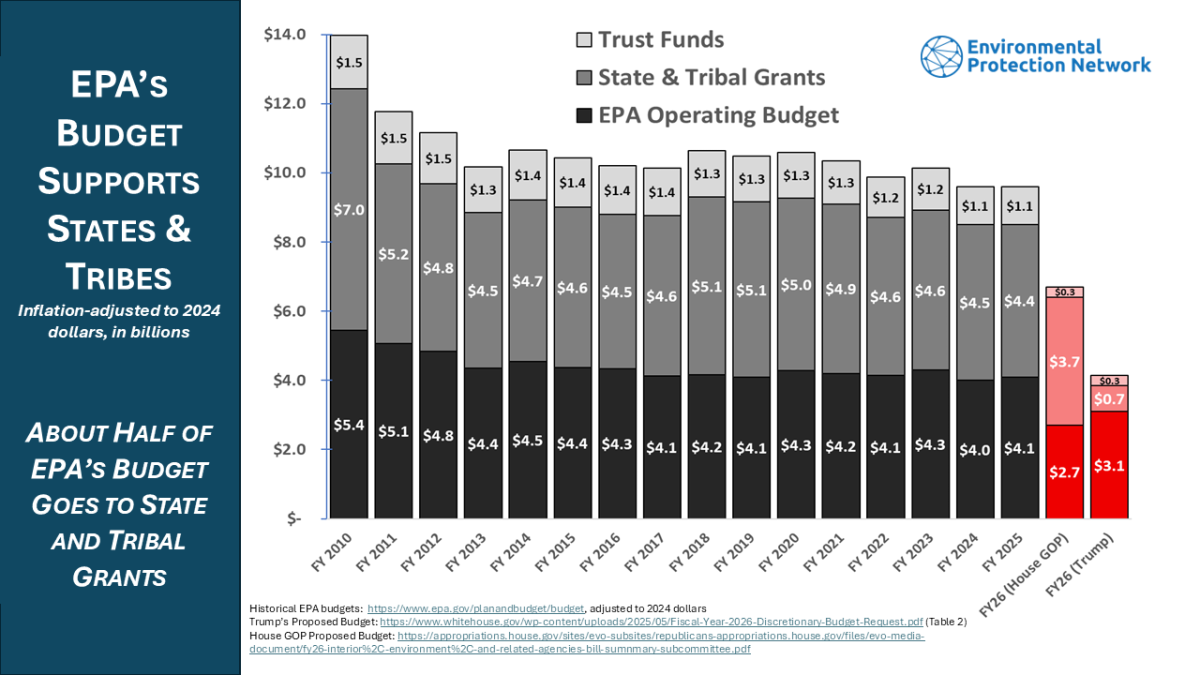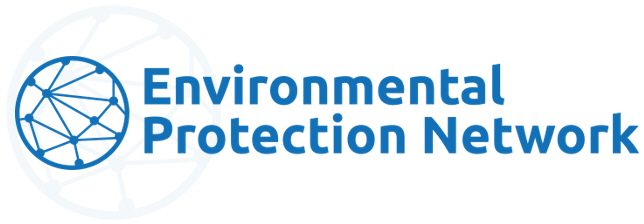FOR IMMEDIATE RELEASE
July 14, 2025
CONTACT:
Aaron Bharucha, Public Relations Associate
(509) 429-1699 and epn-press@environmentalprotectionnetwork.org
Environmental Protection Network Warns that Partisan EPA Funding Proposal Puts Public Health, Environmental Safety and Scientific Integrity at Risk
WASHINGTON, D.C. — Today, House Republicans released an appropriations bill that slashes funding for the U.S. Environmental Protection Agency (EPA), as well as states and tribes, by 23 percent.
“This partisan proposal to slash funding for EPA, states and Tribes would stop life-saving projects and programs in their tracks,” said Michelle Roos, Executive Director of the Environmental Protection Network. “People across the country are facing new toxic threats to the air we breathe, the water we drink and the food we eat. We need a bipartisan EPA budget that invests in clean air and clean water and sets aside politically motivated attacks on our health.”
Key Cuts and Impacts:
- Science. The proposal includes a 30% cut to EPA’s Science and Technology budget, crippling essential research on air pollution, toxic chemicals and climate resilience.
- Enforcement. The proposal would weaken EPA’s ability to hold polluters accountable for violating the Clean Air Act and Clean Water Act, cutting enforcement and other programs as part of a 29% cut to EPA’s Environmental Programs and Management budget.
- State and Tribal Assistance Grants. The proposal includes a $680 million cut in grants to states and tribes, setting back clean drinking water projects and other projects across the nation.
- Environmental Justice: According to a fact sheet from House Republicans, their budget “supports the Trump Administration and mandate of the American people by zeroing out funding for […] any environmental justice activities,” leaving the communities most impacted by pollution especially vulnerable.
In addition to these funding cuts, the bill includes dozens of harmful policy riders that block EPA from enforcing life-saving clean air standards and allow unlimited greenhouse gas emissions from power plants. When adjusted for inflation, the proposed budget would be the lowest budget for EPA in 50 years, and less than half of the agency’s peak budget in 2010. Year after year, Congress asks EPA to do more to protect the public from emerging threats like “forever chemicals” in drinking water, new toxic substances, and accelerating climate change, while providing fewer and fewer resources to the agency.

An overwhelming majority of the public supports EPA. Sixty-eight percent of the public, including more than half of Americans who voted for President Trump in the last election, want members of Congress to vote to increase funding for EPA, compared to only 12% of the public who want EPA’s budget to be cut.

The Environmental Protection Network emphasizes that EPA has long delivered public health and economic benefits far exceeding its budget. Previous Environmental Protection Network analysis, based on EPA’s data, shows that major air and water regulations finalized in recent years will produce over $200 billion annually in net public benefits, including avoided hospitalizations and reduced chronic illness.
In addition to funding EPA’s operations, the annual EPA appropriation includes significant resources that states and Tribes rely on to provide safe drinking water and protect communities in their state. About half of EPA’s budget goes directly to states and tribes as grants for clean water and other infrastructure projects.

The Environmental Protection Network urges Congress to reject this proposal in its current form and develop a sensible, bipartisan proposal to give EPA the resources needed to adequately protect public health and the environment.
###
ABOUT THE ENVIRONMENTAL PROTECTION NETWORK
Founded in 2017, the Environmental Protection Network harnesses the expertise of more than 650 former EPA career staff and confirmation-level appointees from Democratic and Republican administrations to provide the unique perspective of former scientists and regulators with decades of historical and subject matter knowledge.

